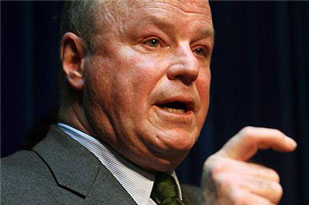Difference between revisions of "Ambassador/Zambia"
(Created page with "{{concept |wikipedia= |start= |interests= |constitutes=ambassador }} {{SMWDocs}} ==References== {{reflist}} {{Stub}}") |
(unstub) |
||
| (One intermediate revision by one other user not shown) | |||
| Line 1: | Line 1: | ||
{{concept | {{concept | ||
| − | |wikipedia= | + | |wikipedia=https://en.wikipedia.org/wiki/Foreign_relations_of_Zambia |
|start= | |start= | ||
| + | |image=Frank Wisner.jpg | ||
| + | |image_caption=Relations with the US were strained at the start of [[Frank Wisner II]]'s term as ambassador 1979-82, when a CIA officer was revealed as recruiting people in Zambia. One of the Zambians turned himself into his government and this caused a huge amount of exposure, ending in the expulsion of a number of Americans. | ||
| + | |image_width=400px | ||
|interests= | |interests= | ||
|constitutes=ambassador | |constitutes=ambassador | ||
| + | |description=Ambassadors to the African nation of [[Zambia]]. | ||
}} | }} | ||
| + | The foreign '''Ambassadors to Zambia''' are the respective countries' highest diplomatic representatives to the African country of [[Zambia]]. | ||
| + | |||
| + | The capital Lusaka currently hosts 41 embassies/high commissions.<ref>According to Wikipedia https://en.wikipedia.org/wiki/List_of_diplomatic_missions_in_Zambia</ref> | ||
| + | |||
| + | ==History== | ||
| + | After independence in 1964 the foreign relations of Zambia were mostly focused on supporting liberation movements in other countries in Southern Africa, such as the [[African National Congress]] and [[SWAPO]]. During the [[Cold War]] [[Zambia]] was a member of the [[Non-Aligned Movement]]. | ||
| + | |||
| + | Many of these organizations were based in Zambia during the 1970s and 1980s. For this reason [[South Africa]] as well as [[Rhodesia]] carried out military raids on targets inside Zambia. Zambia's support for the various liberation movements also caused problems for the Zambian economy, since it was heavily dependent on [[electricity supply]] and transportation through South Africa and Rhodesia. However these problems was partly solved by the [[Kariba Dam]] and the construction of the [[China|Chinese]] supported [[TAZARA|Tanzania-Zambia]] railway.<ref>https://www.britannica.com/place/Tan-Zam-railway</ref> | ||
| + | |||
{{SMWDocs}} | {{SMWDocs}} | ||
==References== | ==References== | ||
{{reflist}} | {{reflist}} | ||
| − | |||
Latest revision as of 12:16, 13 April 2024
(ambassador) | |
|---|---|
 Relations with the US were strained at the start of Frank Wisner II's term as ambassador 1979-82, when a CIA officer was revealed as recruiting people in Zambia. One of the Zambians turned himself into his government and this caused a huge amount of exposure, ending in the expulsion of a number of Americans. | |
| Ambassadors to the African nation of Zambia. |
The foreign Ambassadors to Zambia are the respective countries' highest diplomatic representatives to the African country of Zambia.
The capital Lusaka currently hosts 41 embassies/high commissions.[1]
History
After independence in 1964 the foreign relations of Zambia were mostly focused on supporting liberation movements in other countries in Southern Africa, such as the African National Congress and SWAPO. During the Cold War Zambia was a member of the Non-Aligned Movement.
Many of these organizations were based in Zambia during the 1970s and 1980s. For this reason South Africa as well as Rhodesia carried out military raids on targets inside Zambia. Zambia's support for the various liberation movements also caused problems for the Zambian economy, since it was heavily dependent on electricity supply and transportation through South Africa and Rhodesia. However these problems was partly solved by the Kariba Dam and the construction of the Chinese supported Tanzania-Zambia railway.[2]
An example
| Page name | Description |
|---|---|
| US/Ambassador/Zambia |